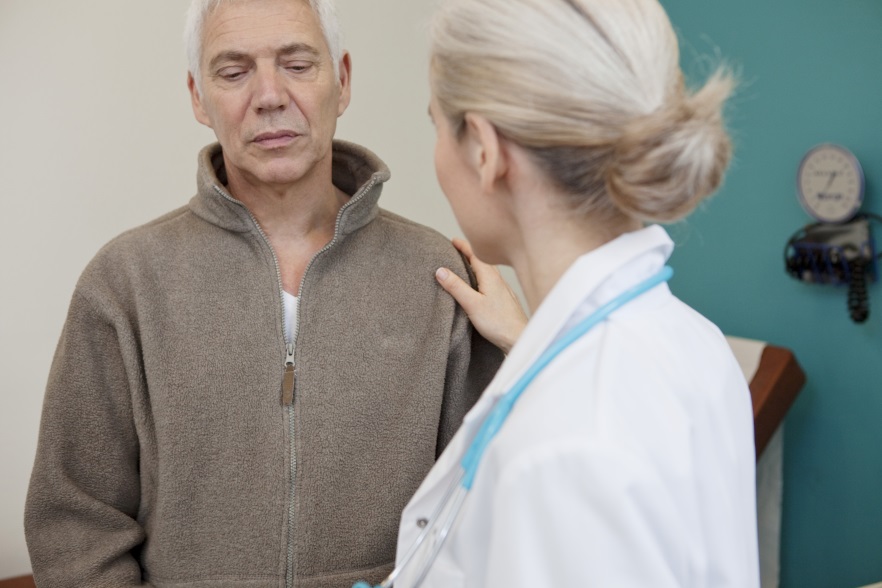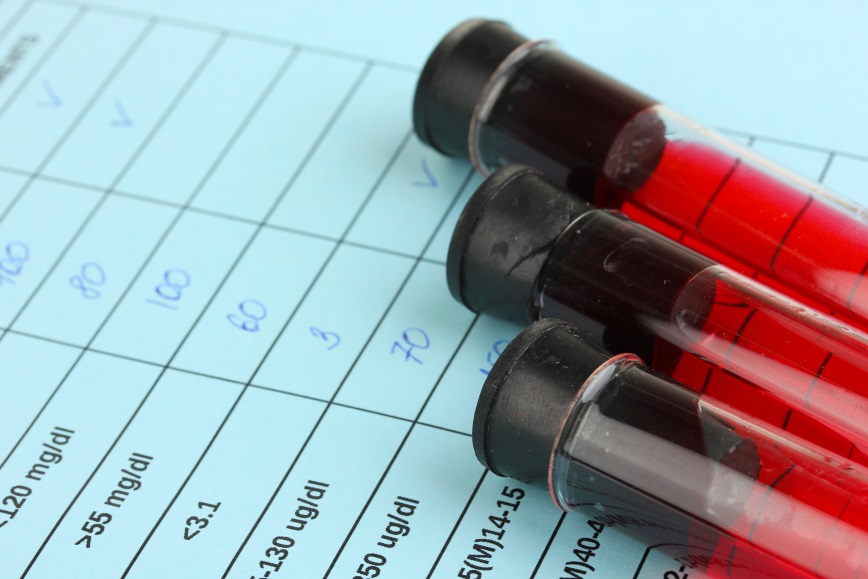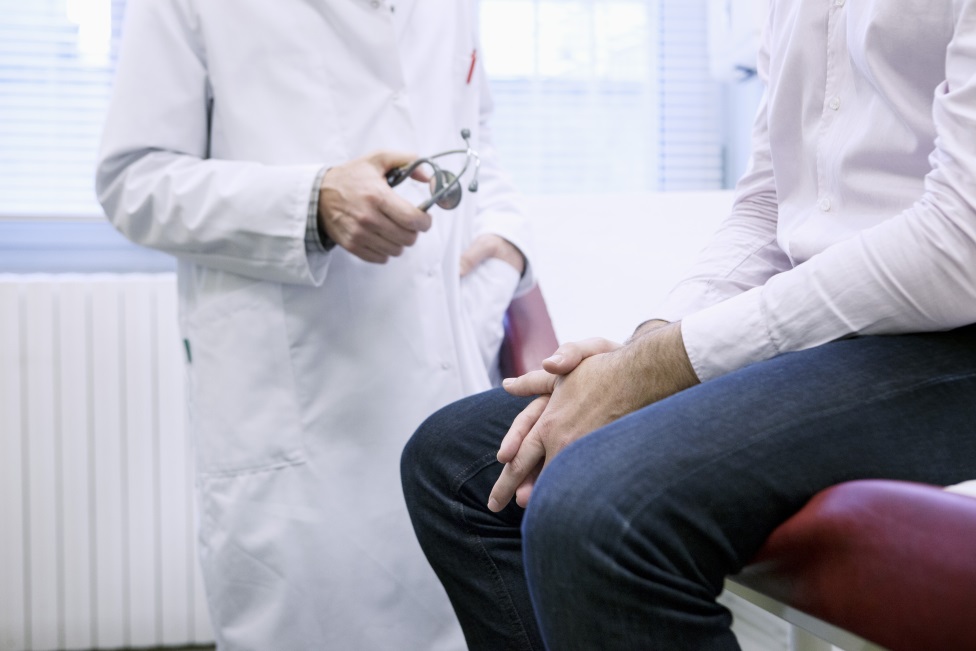Ways to Tell Your Children You Have Cancer
 A cancer diagnosis can feel overwhelming. Not only do you need to learn more about your disease and research cancer treatment options, but you must let your friends and family know about your disease so they can provide the support and assistance that you’ll undoubtedly need as you undergo treatment.
A cancer diagnosis can feel overwhelming. Not only do you need to learn more about your disease and research cancer treatment options, but you must let your friends and family know about your disease so they can provide the support and assistance that you’ll undoubtedly need as you undergo treatment.
Making the announcement to your adult family and friends is challenging enough, but telling your children that you have cancer is often even harder. Young children aren’t equipped to understand the seriousness of your illness, or they may automatically assume the worst. It’s still important to let them know what’s happening. How you approach breaking the news can actually help your entire family beat cancer together.
Get Professional Help
Most experts recommend waiting to tell young children about your diagnosis until you know your prognosis. Children are better able to understand concepts when they can see the entire picture, so while you can never guarantee a particular outcome, it’s far better to be able to say, “Mommy is very sick. She has a disease in her lungs, but the doctors are very confident that they can fix it,” than to say “Mommy is very sick and we don’t know what is going to happen.” Older children and teens may be better equipped to handle uncertainty, and may wish to help you research treatment options, but you will know best what they can handle.
Before talking with your kids, talk with your treatment team about their recommendations. They can provide resources, and many doctors will meet with the entire family to discuss your illness, treatment and prognosis. It may be helpful to have counselors and support groups in place for your kids to turn to if necessary.
Be Positive and Honest
Again, you cannot always guarantee a specific outcome, but it’s best to be as positive as possible when discussing your diagnosis. Young children are generally most concerned with how the announcement is going to affect them, so focus on reassuring them that you will be doing everything you can to ensure that their lives stay as normal as possible. Let them know that others, like grandparents or family friends, will be helping out, but that you will try to maintain as much of your family’s normal routine as possible.
At the same time, your children must understand that there will be some changes to your lifestyle, at least in the short term. Explain that you may need to spend some time in the hospital and you may be ill or uncomfortable at times. It’s very likely that your child will ask whether you will die. Again, it’s important to stay as positive as possible, but be honest. While it may be difficult, in the end being dishonest will only cause more harm.
Maintain Normalcy
Once you’ve made the announcement and given your family time to process the news, try to maintain as much normalcy as possible. Expect that your children will have emotional outbursts or be “clingier” than usual. Try to give them as much attention as possible while still maintaining the same rules and boundaries as before your diagnosis. Ask them questions about their feelings and fears, and keep them as involved as is appropriate. Spend time together as a family without focusing on your illness.
A diagnosis of cancer is difficult to understand at any age, but it’s especially challenging for a child. If you have recently received a diagnosis, schedule a consultation with the compassionate and understanding specialists at Pasadena CyberKnife Los Angeles Cancer Treatment Center to discuss your treatment options. Together, you can develop a course of treatment that meets everyone’s needs.
More
What You Absolutely Must Know About PSA Tests
 Most men of a certain age know that elevated PSA, or Prostate-Specific Antigen, is one of the signs of prostate cancer. However, with all of the attention that PSA receives in the media and in doctor’s offices, many men incorrectly believe that having elevated PSA automatically means that they have cancer.
Most men of a certain age know that elevated PSA, or Prostate-Specific Antigen, is one of the signs of prostate cancer. However, with all of the attention that PSA receives in the media and in doctor’s offices, many men incorrectly believe that having elevated PSA automatically means that they have cancer.
While it is true that the prostate will release more PSA cells into the bloodstream when cancer is present, that isn’t the only cause for fluctuations in the antigen level. Before your next doctor’s visit, understand these important facts about PSA testing.
PSA Levels Change Regularly
In many men, PSA levels fluctuate on a regular basis. Some days the readings can be higher than others — up to 36 percent different, according to Harvard research — usually without explanation. Doctors suspect that the inconsistent readings might be caused by infection or inflammation in some men, while in others, medication, a large prostate or advanced age is the culprit. In any case, if your doctor tells you your PSA is elevated, do not panic, especially if you don’t have any other symptoms. There is a good chance that you just happened to have a “high level” day on the day of your test, and subsequent screenings will show lower levels.
There Is No “Normal” PSA Level
Doctors have long considered PSA levels lower than 4 nanograms per milliliter (ng/mL) to be “normal,” and results above that marker to be cause for concern. However, because so many factors influence PSA levels, and because most of the research conducted to determine the PSA targets only used white men, some experts believe that the 4 ng/mL figure to be inaccurate. While in general, significantly higher levels of PSA do indicate cancer, again, a reading above 4 ng/mL is not a definitive diagnosis. What is normal for you might be high for someone else, and vice versa. Only your doctor can determine whether your PSA is cause for concern and if additional testing is necessary.
Changes Over Time Are Important
Because PSA levels are somewhat unpredictable, doctors don’t rely on a single reading to determine a course of action, especially in those patients who have been treated for prostate cancer. Many men have a significant increase in PSA within a year or two of radiation treatment, which is normal and not usually a cause for concern.
However, a significant and rapid rise in PSA outside of expected ranges is often a sign that the cancer has returned after treatment. In general, doctors consider an increase of 2 ng/mL over the lowest overall reading, or three consecutive rises over the last lowest reading, to be cause for concern. That is why men who have undergone treatment for prostate cancer are encouraged to have regular PSA tests to monitor their levels but are cautioned against taking a single elevated reading as evidence of unsuccessful treatment.
Still, while PSA tests are the best indicator of a potential prostate problem, it’s important to realize that PSA tests are not infallible. Most men who have elevated levels are retested to confirm the results, and only need a biopsy or other invasive test if subsequent tests confirm the results of the first. Biopsies are usually ordered only when other symptoms are present, such as suspicious lumps or difficulty urinating, or if tests indicate an increase in PSA over time. The good news is that of all of the men who undergo biopsies due to elevated PSA, only about 25 percent are actually diagnosed with cancer.
The even better news is that prostate cancer can be effectively treated. If you have received a cancer diagnosis, schedule a consultation with the kind and caring specialists at Pasadena CyberKnife to explore your options. You can make a complete recovery from prostate cancer, so don’t hesitate to follow your doctor’s advice when it comes to PSA screening.
More
New Study Finds Link Between Vitamin D Deficiency & Prostate Cancer

You know it’s important to take your vitamins, but new research suggests that it might be even more important than previously thought.
A recent study conducted at Northwestern University’s Feinberg School of Medicine discovered a significant link between vitamin D and the likelihood of aggressive or recurring prostate cancer. More specifically, men with a vitamin D deficiency were up to five times more likely to have an advanced-stage prostate tumor. In addition, among African-American men, a vitamin D deficiency indicated a greater likelihood of a prostate cancer diagnosis at any stage.
The study included 667 men between the ages of 40 and 69 who were undergoing their first prostate biopsy. Among the men studied, 168 received a cancer diagnosis as a result of the biopsy. All of the men diagnosed with cancer had vitamin D levels significantly lower than the normal range of 30 to 80 nanograms per milliliter. All of the men of European-American descent diagnosed with cancer had vitamin D levels of 12 nanograms per milliliter or less, while the African-American men had levels of 25 nanograms per milliliter or less. In short, the study found that the lower the levels of Vitamin D for any race, the more aggressive and advanced the cancer.
Vitamin D Deficiency Explained
Vitamin D, also known as the sunshine vitamin, is primarily produced by our bodies in response to the sun, although it is found naturally in some foods. Most dairy products are fortified with vitamin D, as it helps with the absorption of calcium.
Vitamin D deficiency is most commonly associated with musculoskeletal problems, most commonly muscle weakness and bone pain. However, it can contribute to other issues, including asthma, cognitive problems and cardiovascular disease — and, as the Northwestern study confirms, certain types of cancer.
The problem is that many adults unintentionally develop vitamin D deficiencies in pursuit of other healthy habits. Because the majority of vitamin D is produced by absorbing sunlight, our modern lifestyle of limiting exposure to the sun and using sunscreen regularly has the side effect of reducing natural vitamin D production. In addition, limiting intake of dairy and animal products (primarily fish and eggs) as part of a healthy diet also reduces natural Vitamin D production. Having darker skin also limits vitamin D production, which the scientists believe is the explanation for the greater correlation between prostate cancer and low levels of the vitamin in African American men.
Treating Vitamin D Deficiency to Reduce Risk of Prostate Cancer
As a result of this study, doctors suggest that maintaining adequate levels of vitamin D could play an important role in reducing risk, particularly after receiving treatment for prostate cancer. While they stress vitamin D is not the only factor in preventing prostate cancer, keeping levels in a healthy range is important and may help prevent the cancer from advancing or returning after treatment.
To that end, adults should talk with their doctors about testing their Vitamin D levels, and supplementing when necessary. Eating foods that contain Vitamin D, including fortified dairy and whole grain items, eggs, leafy greens and certain species of fish, can also help maintain a healthy level. Ideally, you should aim to get at least 600 IU of vitamin D each day; your doctor may recommend more, up to 4,000 IU per day depending on your individual levels.
Maintaining a healthy lifestyle is important when it comes to reducing your cancer risk, and in improving the effectiveness of your treatment. If you have received a prostate cancer diagnosis, consult with one of the compassionate specialists at Pasadena Cyberknife to explore your options and get back to your life as quickly as possible.
More
When you receive a cancer diagnosis, it’s devastating to both you and your loved ones. You undoubtedly have many questions, and you’re bound to experience various emotions as your process your condition and undergo treatment.
Your friends and family are an important part of your support system. It’s likely your spouse and/or your children are going to be very involved in your care; in fact, after your physicians and other treatment providers, perhaps no one else will play a greater role in your treatment and recovery.
Because caregiving is often a full-time job, and one your loved ones gladly take on in addition to their normal responsibilities, it comes with a unique set of challenges. While you need to focus on your needs and recovery post treatment, you can do some things to help your caregivers give you what you need while avoiding exhaustion.
Give Them Something To Do
It’s common for loved ones to feel helpless post diagnosis, and not know how they can help. Perhaps in the future they may need to be involved in direct care, but in the short term after the diagnosis, they may struggle for purpose. Ask your loved ones to research brain cancer treatment centers, for example, or to research new and emerging treatments. Ask for help keeping track of your appointments or for help taking notes during consultations.
Communicate Your Needs
Your loved ones may respond to your diagnosis by going into “help overload.” As a result, you might feel overwhelmed or even more helpless — and end up lashing out at him or her. Speak to your caregiver and communicate your needs. What do you need help with, and what can you handle on your own? What do you want your caregiver to do for you? Be honest, and understand your loved one just wants to help.
Express Gratitude
Chances are your loved one knows you appreciate his or her efforts, but it’s always nice to hear. Make a point of showing gratitude for their efforts and acknowledging their hard work.
Spend Time Together — and Forget About the Cancer
It may sound impossible to forget about something as all-encompassing as cancer, but caregiving experts argue the patient and the caregiver should “take a break” every so often to do something together and not think or talk about the disease for a short time. If you are feeling well enough, a weekend away can do wonders for reviving the spirit; if you’re not feeling well, watching a funny movie or taking a drive can allow you to spend time connecting with each other. Doing so is a reminder of who you both are aside from the disease, and allows you to rest and recharge.
A cancer diagnosis affects the entire family, and without effective communication and support, can lead to frustration, hurt feelings and burnout. As the patient, consider your caregiver’s needs as well as your own — and you’ll successfully face your disease together. For more tips on how to handle this, consult with the kind staff at the Pasadena CyberKnife Center today and get back to what is important in your life.
More
The New England Journal of Medicine recently published the results of a landmark Scandinavian study that showed men who undergo radical surgery upon diagnosis are less likely to die from their disease than those men whose condition is addressed with “watchful waiting.”
The problem, experts note, is the men in the study, which was conducted in partnership with the Harvard School of Public Health, who were part of the watchful waiting group did not receive any treatment designed to cure their prostate cancer, regardless of how their cancer progressed. In essence, the researchers proved surgical treatment for prostate cancer is more effective than no treatment at all, but they did not account for the fact a prostatectomy may not be the best first course of action in all patients.
What Does “Watchful Waiting” Really Mean?
When you were a child and came down with a fever, chances are your parents called the pediatrician, who most likely recommended keeping an eye on your temperature and any other symptoms. If things changed dramatically, the pediatrician recommended your parents then schedule an appointment. In the meantime, your parents would most likely be directed to keep you comfortable and take steps to reduce your fever as much as possible.
The same general principle applies in “watchful waiting” in prostate cancer. Rather than immediately scheduling surgery, which comes with certain risks, patients who have smaller or less aggressive tumors may wait to seek treatment. Prostate cancer tends to develop slowly; if it is not progressing rapidly, the patient has time to consider all treatment options.
Watchful waiting does not mean a patient receives a cancer diagnosis and is sent on his way only to return a year later for a checkup. Some doctors refer to watchful waiting as “active surveillance,” in which the patient undergoes regular exams, blood tests to check PSA levels and biopsies to gauge the progression of the cancer and determine an appropriate course of action. If things change drastically, it’s time to take more aggressive action.
Watchful Waiting Is Not for Everyone
The idea of “watchful waiting” as a plan for prostate cancer isn’t right for everyone. In general, it’s best for patients who have few or no symptoms, a small tumor that is confined to the prostate or expected to grow slowly. If the cancer is fast growing or has already spread, or if the patient is younger (i.e., under age 30) then more aggressive, immediate treatment is usually the best option. Only you and your health care provider can determine the best course of action for your situation.
One of the benefits of watchful waiting is it allows you the chance to explore your treatment options and choose the one that works best for you. We recommend talking with your specialist at the Pasadena CyberKnife Center and scheduling consultations with various treatment providers to learn the risks and benefits of all treatment options, including surgery and radiation. Depending on your case, one method may be more effective than another, and you need to arm yourself with as much information as possible to make the best decision for yourself and your health.
More
 A cancer diagnosis can feel overwhelming. Not only do you need to learn more about your disease and research cancer treatment options, but you must let your friends and family know about your disease so they can provide the support and assistance that you’ll undoubtedly need as you undergo treatment.
A cancer diagnosis can feel overwhelming. Not only do you need to learn more about your disease and research cancer treatment options, but you must let your friends and family know about your disease so they can provide the support and assistance that you’ll undoubtedly need as you undergo treatment.




